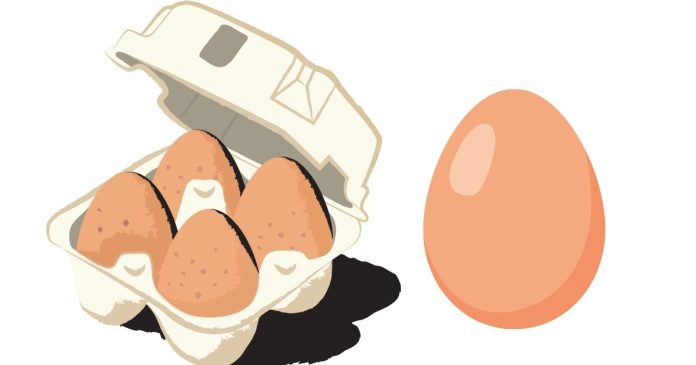Safety Concerns with Leaving Hard-Boiled Eggs Out:
Hard-boiled eggs are prone to bacterial growth if they are left at room temperature for too long. The primary concern is Salmonella, a bacteria that can cause food poisoning. The U.S. Food and Drug Administration (FDA) and the Centers for Disease Control and Prevention (CDC) recommend that perishable foods, including cooked eggs, should not be left out for more than 2 hours.
If the temperature is higher than 90°F (32°C), such as at a picnic or on a hot day, that time is reduced to 1 hour. This is because warmer temperatures allow bacteria to multiply more rapidly.
Why the 2-Hour Rule?
The 2-hour rule is based on the concept of the danger zone. The danger zone is the temperature range between 40°F (4°C) and 140°F (60°C). In this range, bacteria can grow very quickly, leading to an increased risk of foodborne illness. Since eggs are a protein-rich food, they are especially susceptible to bacterial contamination when stored in this zone.
- Fresh eggs: Eggs in their shell can last outside of the fridge for a short time, but hard-boiled eggs are different due to the fact that the cooking process removes the protective coating, leaving them more vulnerable to bacteria.
- Hard-boiled eggs: Once they are cooked, the protective shell’s ability to keep out harmful bacteria is compromised, especially if the eggs are cracked or the shell is removed.
Eggs Left Out Longer Than 2 Hours:
After two hours, bacteria like Salmonella and Listeria can multiply quickly, potentially reaching harmful levels. This is especially dangerous for vulnerable populations like the elderly, pregnant women, young children, and those with weakened immune systems. Eating eggs left out for extended periods can result in food poisoning, which can cause symptoms like nausea, vomiting, diarrhea, and abdominal pain.
How to Properly Store Hard-Boiled Eggs:
- If you want to store hard-boiled eggs safely:
- Refrigeration: Hard-boiled eggs should be kept in the refrigerator within two hours of being cooked. If they have been peeled, it’s best to store them in a sealed container to prevent them from absorbing odors and drying out.
- Storage time: In the fridge, hard-boiled eggs can last for up to 1 week. Make sure to label the container with the date so you know when they were cooked.
- If you need to take hard-boiled eggs on the go:
- Use a cooler with ice packs to keep them at a safe temperature (below 40°F / 4°C).
- If you’re taking them to a picnic, for instance, try to consume them within 2 hours or use a cold storage method (like a thermos with ice packs).
Signs That a Hard-Boiled Egg Has Gone Bad:
If you have left a hard-boiled egg out too long and are unsure whether it’s still safe to eat, check for the following signs of spoilage:
- Smell: A rotten egg will have a sulfurous, foul odor. This is usually the most obvious sign that the egg is no longer safe.
- Appearance: If the egg has been left out too long, the shell may look discolored, or you may see mold growing on the surface.
- Texture: If the egg has a slimy texture when you peel it, that could indicate bacterial growth.
In summary, if you leave hard-boiled eggs out of the fridge, they are safe for up to 2 hours at room temperature. After this, bacterial growth can pose a significant health risk, and the eggs should be discarded. If you plan to store hard-boiled eggs for a longer period, refrigeration is the safest option, allowing them to stay fresh for up to 1 week.



